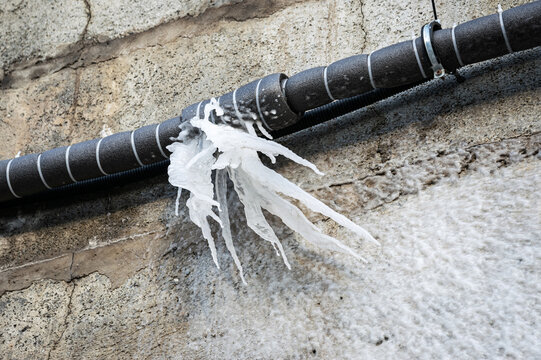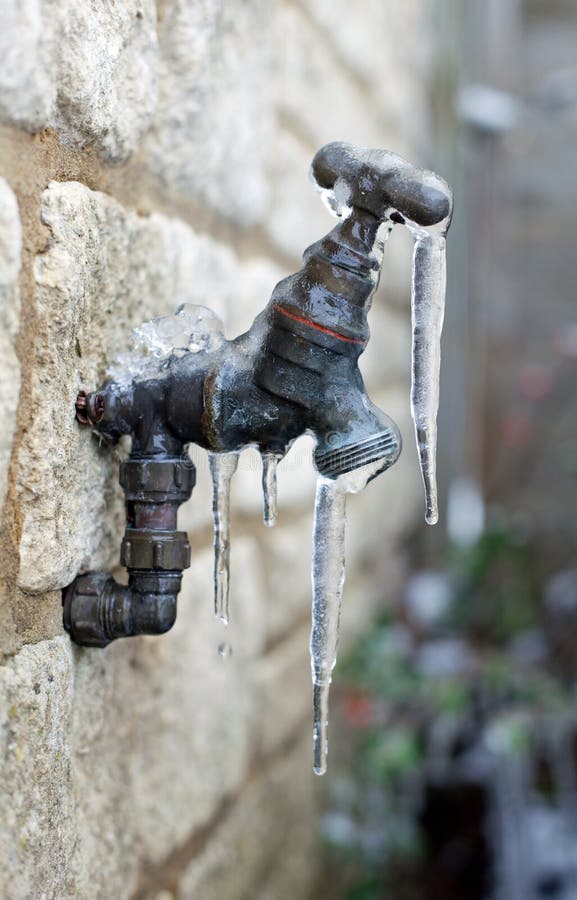Protecting Your Pipes from Freezing: Top Strategies
Protecting Your Pipes from Freezing: Top Strategies
Blog Article
Were you trying to find additional info concerning Helpful Tips to Prevent Frozen Pipes this Winter?

Winter can wreak havoc on your pipes, particularly by freezing pipelines. Right here's exactly how to avoid it from happening and what to do if it does.
Introduction
As temperature levels drop, the risk of icy pipes rises, potentially bring about costly repair work and water damages. Comprehending how to avoid frozen pipelines is essential for property owners in cool environments.
Prevention Tips
Insulating susceptible pipelines
Wrap pipelines in insulation sleeves or utilize warm tape to shield them from freezing temperatures. Focus on pipes in unheated or outside locations of the home.
Heating techniques
Maintain indoor rooms effectively heated up, especially locations with pipes. Open cabinet doors to permit cozy air to flow around pipes under sinks.
Exactly how to identify icy pipes
Try to find lowered water circulation from faucets, uncommon smells or noises from pipes, and visible frost on exposed pipelines.
Long-Term Solutions
Architectural modifications
Take into consideration rerouting pipes far from outside wall surfaces or unheated locations. Include extra insulation to attics, cellars, and crawl spaces.
Upgrading insulation
Purchase high-grade insulation for pipelines, attic rooms, and walls. Appropriate insulation aids maintain consistent temperature levels and minimizes the danger of icy pipes.
Protecting Outside Pipes
Yard hoses and outdoor taps
Separate and drain pipes yard hoses before winter months. Set up frost-proof spigots or cover outdoor faucets with shielded caps.
Recognizing Icy Pipes
What causes pipelines to freeze?
Pipelines ice up when revealed to temperature levels below 32 ° F (0 ° C) for expanded durations. As water inside the pipes ices up, it expands, putting pressure on the pipeline wall surfaces and potentially creating them to burst.
Dangers and damages
Icy pipes can cause supply of water disruptions, property damage, and pricey repairs. Burst pipes can flooding homes and create substantial structural damage.
Indications of Frozen Pipes
Determining frozen pipelines early can prevent them from breaking.
What to Do If Your Pipes Freeze
Immediate actions to take
If you believe frozen pipes, maintain faucets open to eliminate stress as the ice thaws. Make use of a hairdryer or towels taken in warm water to thaw pipelines slowly.
Verdict
Protecting against icy pipes calls for aggressive procedures and quick reactions. By recognizing the causes, signs, and safety nets, house owners can safeguard their plumbing throughout winter.
Helpful Tips to Prevent Frozen Pipes this Winter
UNDERSTANDING THE BASICS: WHY PIPES FREEZE AND WHY IT’S A PROBLEM
Water freezing inside pipes is common during the winter months, but understanding why pipes freeze, and the potential problems it can cause is crucial in preventing such incidents. This section will delve into the basics of why pipes freeze and the associated problems that may arise.
THE SCIENCE BEHIND FROZEN PIPES
When water reaches freezing temperatures, it undergoes a physical transformation and solidifies into ice. This expansion of water as it freezes is the primary reason pipes can burst. As the water inside the pipe freezes, it expands, creating immense pressure on the walls. If the pressure becomes too great, the pipe can crack or rupture, leading to leaks and water damage.
FACTORS THAT CONTRIBUTE TO PIPE FREEZING
Low Temperatures: Extremely cold weather, especially below freezing, increases the risk of pipes freezing. Uninsulated or Poorly Insulated Pipes: Pipes located in unheated areas, such as basements, crawl spaces, or attics, are more prone to freezing. Insufficient insulation or lack of insulation altogether exacerbates the problem. Exterior Wall Exposure: Pipes running along exterior walls are susceptible to freezing as they encounter colder temperatures outside. Lack of Heating or Temperature Regulation: Inadequate heating or inconsistent temperature control in your home can contribute to frozen pipes. PROBLEMS CAUSED BY FROZEN PIPES
- Pipe Bursting: As mentioned earlier, the expansion of water as it freezes can cause pipes to burst, resulting in significant water damage.
- Water Damage: When pipes burst, it can lead to flooding and water damage to your property, including walls, ceilings, flooring, and personal belongings.
- Structural Damage: Prolonged exposure to water from burst pipes can compromise the structural integrity of your home, leading to costly repairs.
- Mold and Mildew Growth: Excess moisture from water damage can create a favorable environment for mold and mildew growth, posing health risks to occupants.
- Disrupted Water Supply: Frozen pipes can also result in a complete or partial loss of water supply until the issue is resolved.
WHY CERTAIN PIPES ARE MORE PRONE TO FREEZING
- Location: Pipes located in unheated or poorly insulated areas, such as basements, crawl spaces, attics, or exterior walls, are at higher risk of freezing.
- Exterior Pipes: Outdoor pipes, such as those used for irrigation or exposed plumbing, are particularly vulnerable to freezing as they are directly exposed to the elements.
- Supply Lines: Pipes that carry water from the main water supply into your home, including the main water line, are critical to protect as freezing in these lines can affect your entire plumbing system.
- Underground Pipes: Pipes buried underground, such as those connected to sprinkler systems or outdoor faucets, can be susceptible to freezing if not properly insulated.
https://busybusy.com/blog/helpful-tips-to-prevent-frozen-pipes-this-winter/

I am just very serious about How to prepare your home plumbing for winter weather and I really hope you appreciated my piece. Sharing is nice. You just don't know, you might be helping someone out. I am grateful for your time. Revisit us soon.
Book Instantly Report this page